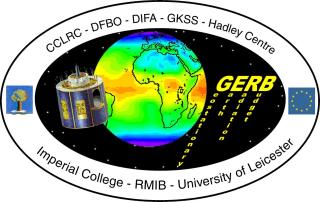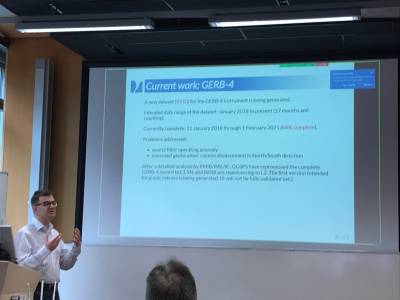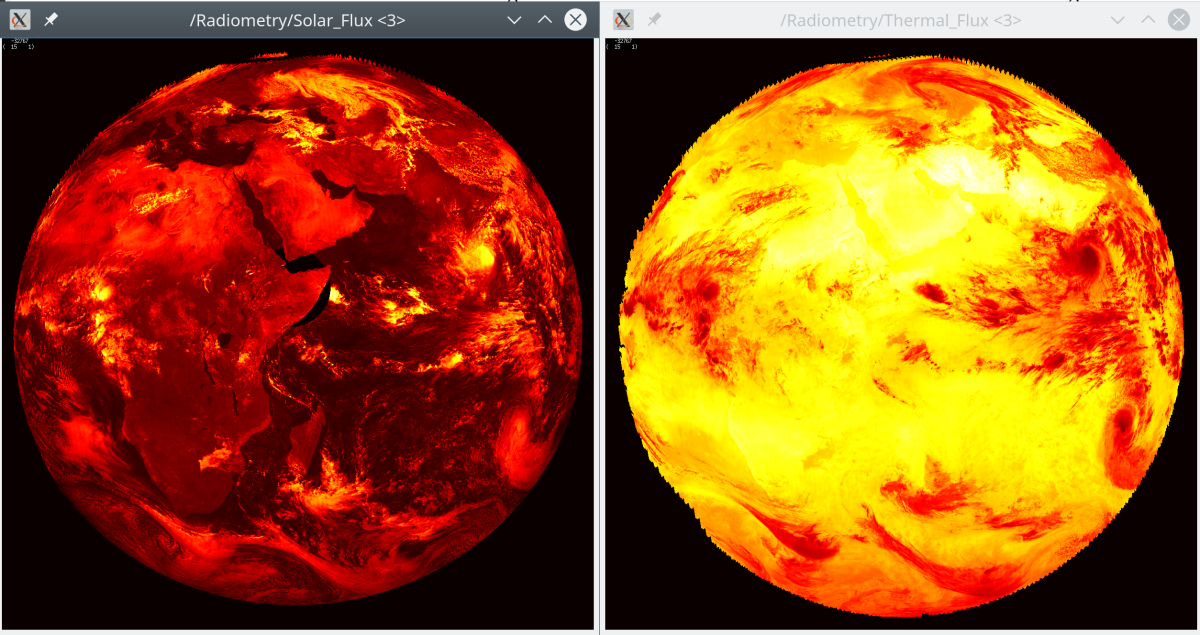Table of Contents
The GERB project at RMIB
- FTP site – GERB intranet (login)
The Geostationary Earth Radiation Budget (GERB) Project project is carried out in the Remote Sensing from Space group at RMIB that is also active in the Climate Monitoring SAF (CM SAF), the EarthCARE Earth Explorer, and the Copernicus Climate Change Service (C3S).

Geostationary Earth Radiation Budget (GERB) Project
News
May 2024
Release of the GERB 4 V100 dataset: GERB 4 and SEVIRI 4 level 2 products from February 2018 to February 2023. Please read the Release information for the GERB 4 V100 dataset.
Data access is public at https://gerb.oma.be/public/GERB/V100
December 2023
Job Announcement:
The Royal Observatory of Belgium (ROB) and the Vrije Universiteit Brussel (VUB) jointly offer a
Long-term senior research position to develop the Earth Climate Observatory space mission for the measurement of the most Essential of all Climate Variables: the Earth Energy Imbalance.
More details can be found in the full job description here. https://gerb.oma.be/public/nic/Joboffer-ECO-20122023.pdf
October 2023
Presentation about the GERB-4 dataset at the CERES Science Team Meeting:
https://ceres.larc.nasa.gov/documents/STM/2023-10/10_Clerbaux.pdf
September 2023
There were two presentations mentioning GERB at EUMETSAT 2023:
- Xinyue Wang, Kevin Wolf, Grégoire Dannet, Olivier Boucher, Nicolas Bellouin, “Radiative forcing of a contrail cirrus outbreak over Western Europe in June 2020”, using GERB to validate a radiative transfer model
- Pierre De Buyl, Edward Baudrez, Christine Aebi, Nicolas Clerbaux, Johan Moreels, Jacqueline E. Russell, “Geostationary Earth Radiation Budget (GERB): status update and user-friendly access to GERB data using Python”, discussing the status of the GERB-4 data, and a new Python reader for user-friendly access to the GERB data
October 2022
The “Earth Radiation Budget Workshop” is on-going, in Hamburg, Germany. The GERB team is presenting its latest achievements. 
August 2022
The “Quartz Filter Anomaly” affecting the GERB4 data has been fixed and the GERB4 record (Jan 2018 onward) is under reprocessing. The data is expected to be available in time for presentation at the EUMETSAT 2022 conference in Brussels.
August 2022
The next “Earth Radiation Budget Workshop” will be held on October 12-14, 2022, in Hamburg, Germany. This workshop is the join meeting of the CERES, ScaRaB, GERB, and Libera science teams.
July 2022
Presentation of the GERB record at the International Radiation Symposium (IRS) @ Thessaloniki, Greece: “Preliminary Validation of 18 Years of Broadband Radiation Data from the Geostationary Earth Radiation Budget (GERB) Instruments”, Christine Aebi Presentation (PDF)
June 2022
As part of the MSG2 payload, the GERB1 instrument is now operational over the Western part of the Indian Ocean (subsatellite longitude of 45.5° East). The GERB1 Indian Ocean record starts on 9th May 2022 and is processed in near real time with the version tag V007.
Data available for evaluation via the ROLSS: https://gerb.oma.be/doku.php?id=data_access
As illustration, the HR solar (left) and thermal (right) fluxes on 10 May 2022 at 09:00 UTC.
September 2021
<html><p align=“right”; style=“font-size:80%”><em>This wiki uses <a href=“https://git.io/papirus-icon-theme”>Papirus</a> icons (GNU GPLv3).</em></p></html>

